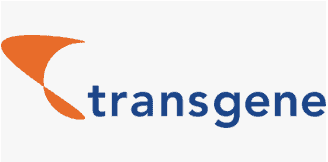
French biotech Transgene has abandoned a phase 3 trial of its SillaJen-partnered liver cancer therapy after an interim analysis suggested almost no chance of a positive outcome.
Pexa-Vec (pexastimogene devacirepvec) – one of the new class of oncolytic virus therapies (OVT) – didn’t add to the efficacy of therapy when it was added to treatment with Bayer/Amgen’s marketed cancer drug Nexavar (sorafenib), sending shares in both companies into a slump.
Transgene said in a statement that South Korean biotech SillaJen had decided not to continue enrolment in the PHOCUS trial after its independent data monitoring committee found that it was unlikely to show an increase in overall survival, its primary endpoint.
PHOCUS was testing whether a dose of Pexa-Vec given ahead of Nexavar could improve outcomes in hepatocellular carcinoma (HCC), the most common form of liver cancer, and had been due to continue until the end of next year. Nexavar – an oral multikinase inhibitor – is a standard first-line therapy for HCC.
Analysts had been pessimistic about the chances of its success – particularly as Pexa-Vec had failed in an earlier liver cancer study and looked like it would struggle to top Nexavar’s impact on survival.
Shares in Transgene fell around 13% as the news emerged, while SillaJen saw almost 30% wiped off its value – reflecting the fact that its valuation is much more reliant on Pexa-Vec, which accounts for all but one preclinical programme in its pipeline.
It’s a big deal for Transgene as well of course, as a chunk of the French biotech’s pipeline is weighted towards OVT, and Pexa-Vec is the lead asset in that programme, with its next candidate TG6002 heading for a phase 1/2a trial in colorectal cancer patients with unresectable liver metastases before year-end.
OVT relies on the finding that certain viruses can be directed to infect and kill cancer cells only, sparing healthy cells, and in many cases – including Pexa-Vec – the virus is modified to contain genes that boost the immune response.
It’s an approach that has already yielded one FDA- and EMA-approved product – Amgen’s Imlygic (talimogene laherparepvec) – which was launched in 2015 for melanoma but hasn’t made much commercial progress.
It’s fair to say OVT has been a ‘next big thing’ in cancer for some time, but until now has largely failed to live up to its early promise.
There is certainly plenty of interest in the concept, however, witnessed by a string of deals between big biopharma companies and OVT specialists, including AstraZeneca’s recent alliance with Transgene on five engineered oncolytic vaccinia virus candidates.
Boehringer Ingelheim made a big play in the category when it bought ViraTherapeutics for $236m last September, as did Merck with its $394m purchase of Viralytics, while Abbvie and Johnson & Johnson have tied up with Turnstone Biologics and BeneVir Biopharm, respectively.




